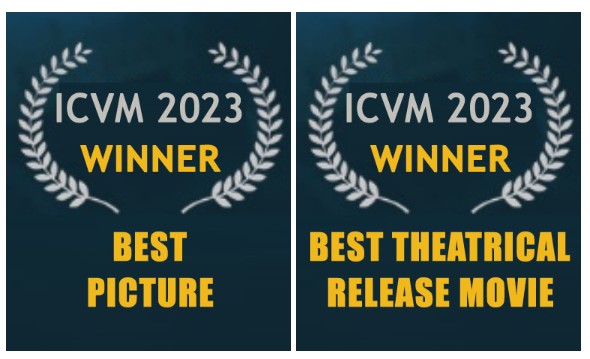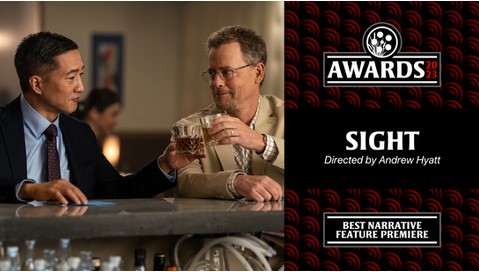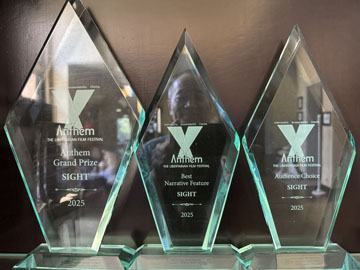When he came to America as a poor Chinese immigrant, he saw only opportunity and eventually earned a PHD in laser physics from MIT and a MD from Harvard.
“I came from China as an atheist. I believed nothing but science,” says Dr. Wang. “I was studying the structure of eye in med school and I realized that the human eye is so complicated. Trillions of trillions of cells has to line up perfectly for visual signal capturing and interpretation. If any one of those cells gets out of line, the person will be born blind.”
Dr. Wang continues, “So I had a big problem and the atheist me at the time, that how could so many cells form in such a short period of time out of randomness. So I kept on asking a professor and he said, 'Ming what's across the street?' I said, 'That's a car.' He said, 'What's the difference between a car and human eye?' I said, 'Human eye is a lot more complicated.' He said, 'Okay, can you imagine how random pieces of metal form itself into a car?' I said, 'No way.' And he said, 'How about human eye?' So, right there he opened a window in my life, making me realize that it was formed with a specific purpose for vision. So, there's a designer, a creator behind that. And I start with my journey believing first there's a creator, there's a God, and later on more specifically, the God is in the form of Jesus Christ and Christ has died for our sin so that we could have a chance for eternity.”
Dr. Wang began his career at Vanderbilt University in Nashville, TN. Years later he started The Wang Vision Institute, establishing a foundation to restore sight for orphans from around the world. Dr. Wang continues, “So far, I have done 55,000 laser vision corrections, including on over 4,000 doctors. Our foundation, we've been able to help many, many patients from around the world, from over 55 countries, and dedicated to blind orphan children.”
Kajal, a little girl from India had acid poured in her eyes by her stepmother. Prayerfully he attempted surgery, but was crushed with disappointment. “The surgery failed because her damage was too severe to be repaired when I opened her eyes during the surgery,” remembers Dr. Wang. “My Christian faith was fundamentally shaken at that time. I felt that if God, 'You're so loving, why would let you something horrible happen in the first place? But even that happened, why don't You answer our prayer to try to rescue Kajal eyesight in such a helpless precious child?' So for many months I was very down and I felt that I couldn't continue this line of work to help more blind orphan children and I felt that God didn't care to answer our prayer.”
That year at his annual fundraising event called the “Eye Ball,” Kajal and her host families were special guests. One of the boys that spent time with Kajal throughout the year said something that surprised Dr. Wang. “The boy turned around, talked to his father behind him, said, 'Dad, I'm okay. I don't need an iPod anymore.' So, standing on the side with Kajal on my side, I was looking at the boy, all of a sudden something dawned on me. That Kajal's suffering has... and how she dealt with it, she was able to move on and do the best with what life has dealt with her and still find joy and happiness in her life...has positively impacted those kids around her, make those American kids who grew up in this country appreciate more what they have,” says Dr. Wang. “So, I realized that Kajal, even though she couldn't see, there's no light coming from outside, light could emanate from within if one has love.”
He continues, “So I've come to realize that as a Christian, the ultimate test of the strength of our faith is not when we pray something God immediately gives us what we pray for. It's when we pray something God seemingly did not answer the prayer and give us what we want. Can we still maintain faith and confidence in Him, believing that He will answer, but in His way, at His time?"
Today Dr. Wang continues to help orphans regain their vision. His autobiography, From Darkness to Sight, is now the major motion picture, Sight. He hopes his journey will help others start theirs.
“Seeing the film, Sight, will make the young people in America realize today that science and faith are meant to work together,” says Dr. Wang. “You know, they do not have to choose between science or faith. They can choose science and faith."
"By making a case to the young people, many of them are rapidly leaving churches, that science and faith to work together in this very rapidly developing scientific era, we have the best chance to bring those young people back to church.”
Watch a preview of the film Sight and discover more about the wonderful work Dr. Ming Wang is doing at www.WangVisionInstitute.com.





